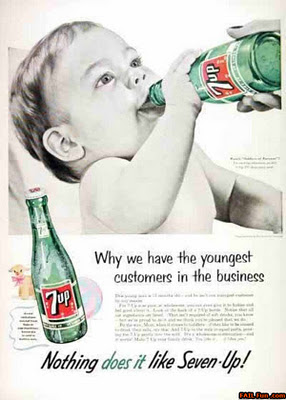
~>The soda, or beverage, industry is truly amazing. No matter how horrible the drinks are for your health, your wallet, and even your taste buds (let's admit it, most soda drinks are kind of disgusting) the industry is worth over $500 billion and continuing to grow with the support of millions of addicted customers! More surprising is that the government mandates that all bottled beverages be pasteurized, so all of the claims about vitamins, minerals, and other healthy benefits are direct lies.pasteurization is the process of heating up the liquid before bottling to kill harmful bacteria thus killing the good stuff. The worst of the different types of beverages is the massive soda industry that makes up more than 60% of the entire beverage industry.
~>According to the Beverage Marketing Corporation, Americans drink more than 50 gallons per capita of carbonated soft drinks each year. That adds up to thousands of extra calories, sugar, and who knows what else. For example, if Coke Classic is your drink at 96 calories per can, it adds up to 77,300 calories per year and 43,100 mg of caffeine per year.Other drinks studied included bottled water, coffee, fruit beverages, milk, tea, beer, wine, spirits and carbonated soft drinks. Of the nine, soda made up the largest segment of beverages consumed and the U.S. as the highest per-capita soda consumer in the world. But what is all this soda doing to our bodies? To know exactly what you're drinking, have a look at these ten seriously disturbing facts about soda.
1. The Increased Risk of Osteoporosis: This disease is a serious condition that can result in tremendous pain with fractures caused by thinning of the bones. Those at risk include seniors, women, smokers, and now those who regularly consume soda. Experts speculate that replacing calcium rich drinks, such as milk, with soda is leading to a deficiency and therefore an increase in osteoporosis. WebMD has more in this expert article.
2. Passing Soda May be Harder Than You Think: According to a study in the "Journal of Clinical Epidemiology," phosphate-based soft drinks have been proposed as a contributor to kidney stones. It looked at over 1,000 male patients who both formed kidney stones and were consumers of a significant amount of soda to see what effect soda might have on stone recurrence. Those who consumed phosphate-based sodas in the largest quantities had the highest rate of kidney stone recurrence.
3. Soda-holics on the Rise: Much like alcohol or any other narcotic, soda can become an addiction. In fact, due to its high levels of caffeine, artificial sweeteners, and sodium, it is difficult to tell which consumers become addicted to, if not all three. This addiction can lead to a variety of health problems, including weight gain, diabetes, and tooth erosion. This article at Suite 101 has loads more.
4. Annual Costs Can be Huge: With a twelve pack of soda averaging three to four dollars, have you ever stopped to think how much that costs per year? If your family drinks three per week, the annual cost is $546. With a soda tax looming, it can easily bloom to approximately $790.5. Linked to Tooth Decay: According to a report published in "General Dentistry," the phosphoric acid in soda causes tooth enamel erosion, even with minimal exposure. In fact, a spokesman for the Academy of General Dentistry says that the levels of acid found in sodas are comparable to that of a battery. There are also dangers for your teeth associated with the high sugar content of soda.
5. Linked To Tooth Decay: According to a report published in " General Dentistry," the phosphoric acid in soda causes tooth enamel erosion, even with minimal exposure. There are also dangers for your teeth associated with the high sugar content of soda.
6. Mountain Dew Syndrome: Did you know that Central Appalachia is America's number one spot for tooth decay? This is contributed to by poor diet, lack of access to dental care, and a love of soda, particularly Mountain Dew. This condition has become so common it is referred to as Mountain Dew Syndrome. Another disturbing fact about soda is that it was found to be used as a self-medicated anti-depressant.
7. What's Not On The Label: Studies have found that soda served from fast food fountains contain coliform bacteria, which is linked to fecal matter. To make matters worse, the bacteria was found to be resistant to eleven antibiotics.











No comments:
Post a Comment